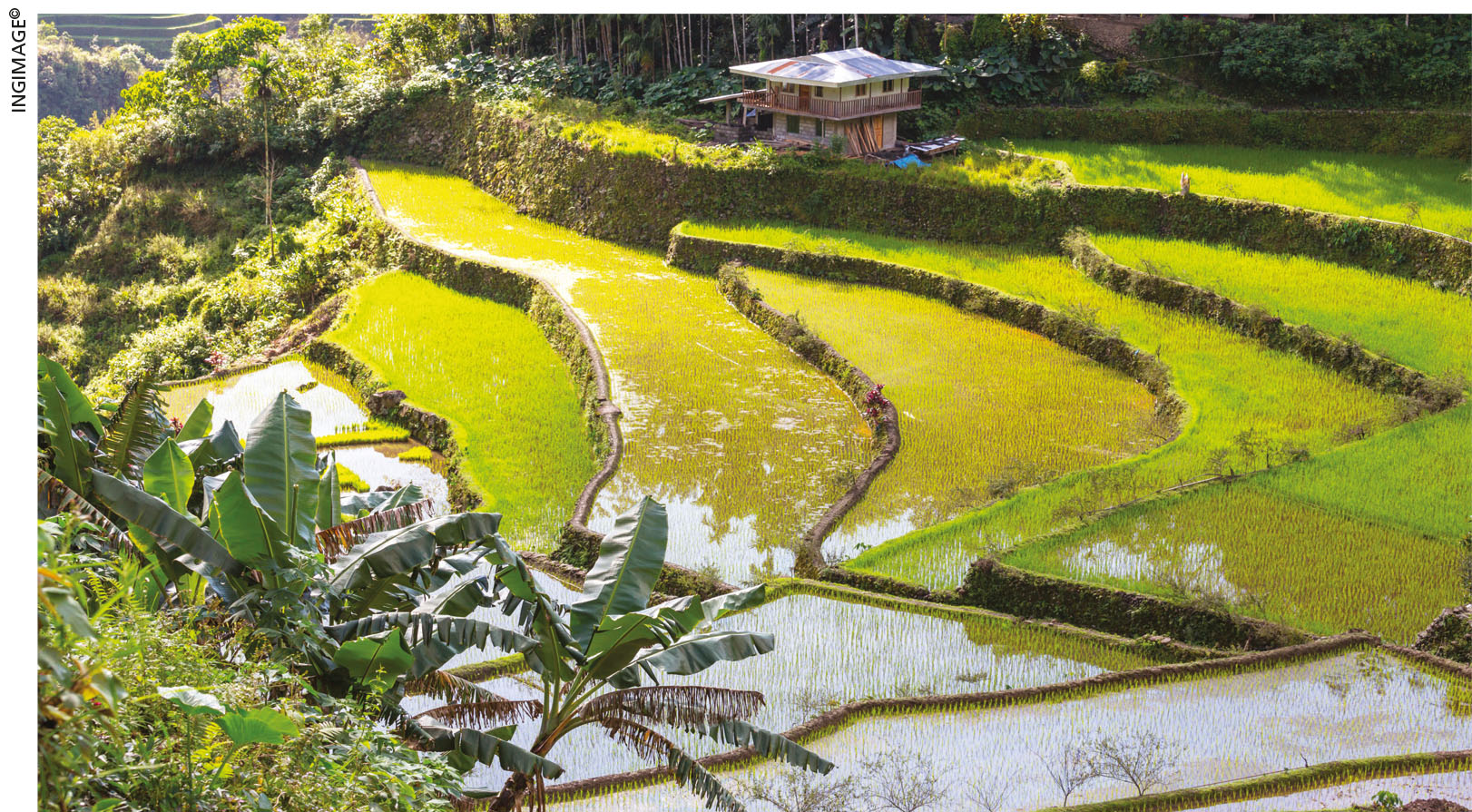AGRICULTURE SECTOR
RESOLVING THE FOOD CRISIS
Janaka Perera wonders if agro-ecology can address hunger across the planet
Since Sri Lanka and other countries resorted to growing high-yield rice to feed increasing populations, a controversy has been growing over the dependency on herbicides and other agrochemicals.
To tackle this problem, agro-ecology has become the way to balance the use of agrochemicals with protecting biodiversity. It’s considered to be the best approach to addressing food security while ensuring environmental integrity, as noted by Third World Resurgence magazine.
Agro-ecologists do not unanimously oppose technology or inputs in agriculture. Instead, they assess how, when, and if technology can be used in conjunction with natural, social and human assets.
Agro-ecology mimics nature in terms of the diversity of its landscape, species and synergies, as well as high levels of recycling. In an agro-ecological farm, a field is surrounded by trees that act as a buffer for winds and rains, while providing food, fodder and natural fertilisers – much like a forest.
Meanwhile, the field mixes different varieties of plant species including those in the hedgerows, and integrates animal species such as eels (which shake off pests in rice paddies), chickens (which hunt for snails in cornfields) and beneficial insects (which control pests).
This field isn’t associated with any particular method of farming – organic, integrated or conventional, intensive or extensive – but has more in common with organic and integrated farming.
According to Science Daily website, agro-ecology is the science of sustainable agriculture with methods that aim to achieve sustainability for agricultural systems, which is balanced in all spheres including the socioeconomic, ecological or environmental.
While farming methods vary, traditional manipulated agro-ecosystems tend to differ from natural ecosystems in six ways: maintenance at an early succession state; monoculture; crops being generally planted in rows; simplification of biodiversity; ploughing, which exposes soil
to erosion; and the use of GMOs, as well as artificially selected crops.
Agro-ecology tends to minimise human impacts; it primarily views farming systems with an ecologist’s eye – i.e. its main objective is neither economic (commodity and profit) nor industrial (factory model).
According to Groundswell International, the current industrialised food and agriculture system is leading to millions of hungry people, and an equal number who are overweight and suffer related health effects. Moreover, it notes that almost half the world’s people live in poverty
The NGO cites industrial agriculture as a major contributor to climate change, which in turn impacts the livelihoods of family farmers around the world. Limited oil supplies and increasing costs are rendering inputs like fertilisers to be too expensive for most family farmers, resulting in food price hikes.
Therefore, the question is whether people can be fed by continuing the trends that industrial agriculture has created or transitioning to more sustainable and agro-ecological production.
In the organisation’s view, world hunger is not a question of production as there’s sufficient food on the planet. But the hungry are unable to purchase it or produce enough in the current system. However, 70 percent of the world’s food is produced by three billion small-scale farmers and food producers. Agro-ecological farming by family farmers has also proved to be highly productive and sustainable.
Regarding its support for agro-ecological practices, Groundswell International states that it developed this commitment “because we discovered, alongside the farmers, that it works.”
The highlighted benefits include more food production; fewer input requirements and reduced expenses; improved soil fertility; better rainwater collection and management; better pest management; greater income generation; diversified farming systems producing synergistic benefits; improved resilience of farms and communities to climate change and shocks; sequestering of carbon in soils rich in organic matter; integration of trees into farming systems; and finally, farmers using their skills, knowledge and creativity to manage the process.
Rather than traditional farming, agro-ecology is a constant process of innovation led by farmers contending with evolving circumstances to determine how to farm well and improve life.
Attention was drawn to these issues at the Asian Agroecology Encounter, which was organised by La Via Campesina (LVC) and hosted by the Movement for Land and Agricultural Reform (MONLAR) in Sri Lanka in 2010. This was attended by practitioners, promoters and trainers of sustainable agriculture from LVC organisations in East Asia, Southeast Asia and South Asia.
MONLAR also hosted the Asia Agroecology and Climate Justice Encounter in Sri Lanka in 2017. At this gathering, over 60 participants shared their experiences of agro-ecological practices and its role in mitigating the global climate crisis.







A good article. Agree with the writer.
In the golden days of Sri Lanka, in ancient times, integrated farming thrived in an agro-ecological environment. The giant international organizations were not to be heard of those days. Neither, the novel concepts – such as integrated marketing – that are now making appearances. Those days, agricultural environments were not market-driven but were self-sufficient, where villages saw to the supply of food. As such, there seems to be no reason for a rising population, methods for high yielding crops that grow faster, and the need for herbicides too.
Agro-ecology looks at a more sustainable approach and at the overall picture in the long term, beyond just the environment and economical aspects. It brings in more benefits, enabling less costly methods, and ensures usability of arable land with the richness and readiness of the soil for crop rotation (depending on the supply, demand and price) in times of changing weather patterns such as rainfall, for instance.
In other words, agro-ecology aims to supply food by ironing out many indifferences that currently occur such as food shortage; reduce malnutrition by increasing the affordability to buy food and to secure the income of farmers, especially the small scale players who form the majority of food suppliers globally. In a world of turmoil, with changing weather patterns and agricultural methods, the land needs to be flexible for adaption too.